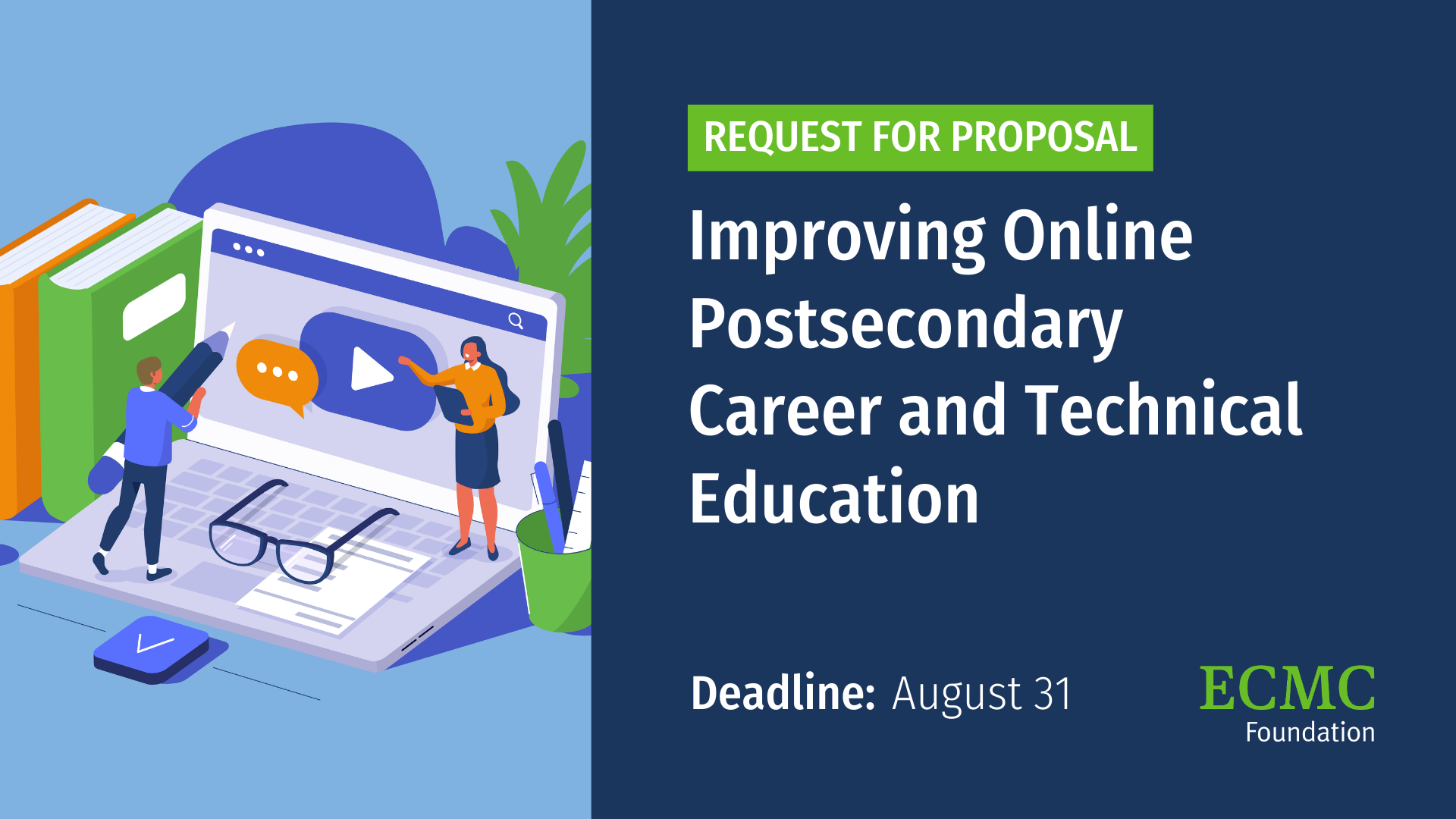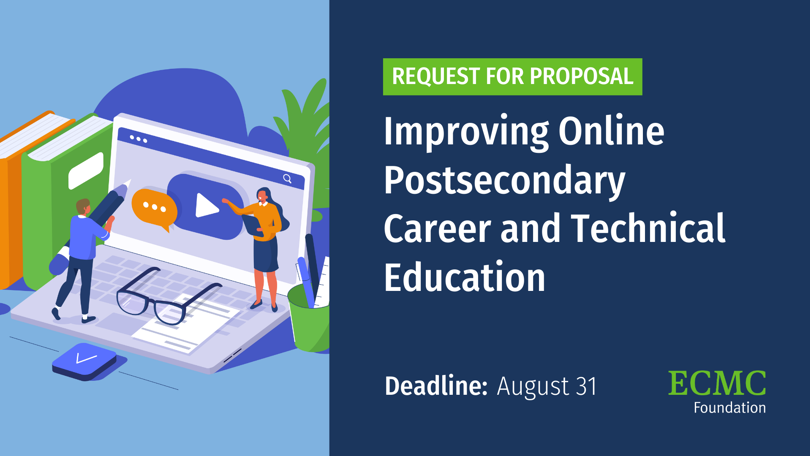RFP: Improving Online Postsecondary Career and Technical Education
August 05, 2020


ECMC Foundation is accepting proposals from nonprofit organizations, postsecondary institutions, and government entities positioned to help community and technical colleges improve online postsecondary career and technical education (CTE) over the next two and half years. This competitive process will result in the selection of one organization (grantee) to receive a grant up to $2.5 million and lead a formal or informal coalition of nationally recognized organizations.
The coalition is expected to articulate best practices for transitioning hands-on learning to a virtual setting; help institutions incorporate learner-centered approaches, wraparound supports, and industry-informed pathways in an online environment; provide institution-specific guidance for faculty and staff; evaluate implementation efforts; and share learnings with the field.
Interested organizations must submit their concept via ECMC Foundation’s online form. Submitted proposals must be centered on the overall goal of reducing completion gaps in online postsecondary CTE programs, especially for African American and Latinx students.
The deadline to apply is 3:00 PM (PT) on August 31, 2020. Final notifications will be issued no later than September 9, 2020.
Read the full RFP, including eligibility requirements, selection criteria, and application instructions to learn more.
Frequently Asked Questions
Are independent consultants eligible to apply?
Consultants with a nonprofit status are eligible to apply as a lead organization for this RFP. For-profit consultants are welcome to collaborate with a lead nonprofit organization, postsecondary institution, or government entity as a coalition member.
Can coalitions be led by or include for-profit companies?
For-profit companies are not eligible to serve as the lead, but are welcome to collaborate as a coalition member.
Does the lead organization need to have expertise in career and technical education (CTE)?
No, the lead organization does not need to have strong CTE experience. Proposals will be weighed heavily by the makeup of the coalition members, who should demonstrate expertise in postsecondary education, CTE, and/or online education, and/or experience working with community colleges and technical colleges.
Will the coalition need to be completely formed at the time of submission of the concept paper on August 31st?
The concept paper submitted on August 31 should include a list of the partners the lead organization is planning to work with during the grant period. If selected to advance, MOU’s from coalition members, a more detailed action plan, budget and other supporting financial documents will need to be submitted by September 16.
My organization is considering submitting a proposal as the lead organization of a coalition, but we are also being contacted by other organizations to be part of the coalition. Will this compromise our application?
Ultimately, we are looking for a compelling idea that leverages the knowledge and expertise of other partners in the field. Eligible organizations applying as a lead organization can be listed as a formal/informal coalition member on another organization’s application without compromising either application.
What constitutes a diverse coalition?
The coalition should include a diverse mix of organizations that have expertise in postsecondary CTE online education, experience working with community colleges and/or technical colleges, and a commitment to reducing completion gaps for online CTE programs, particularly for African American and Latinx students.
Will the project require an external evaluator?
While we expect to review an evaluation plan to measure the efficacy of the program, we do not require an external evaluator to conduct a formal evaluation. The lead organization should detail an evaluation plan that best fits the proposed program and include dissemination activities that can share broad learnings with the field.
